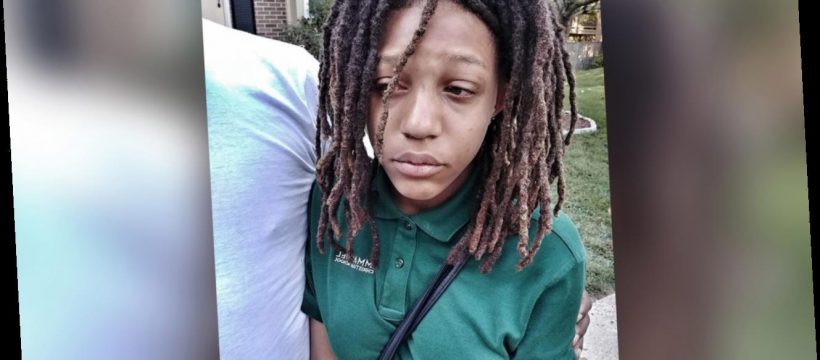Last month, 12-year-old Amari Allen appeared on television to share how she had been brutalized by racist white boys at Immanuel Christian School in Springfield, Virginia. The sixth-grader, who is black, wept as she recalled how she was pinned down during recess, had her arms pulled behind her back and had a hand placed over her mouth so she couldn’t scream.
She said the boys cut off her dreadlocks, calling it “nappy.” By Monday, it was revealed that, following an investigation by Fairfax County Police, the girl admitted she had made it all up.
When the story first broke, left-wing politicians and activists raged. Rep. Rashida Tlaib published a personalized message on Twitter to the girl: “You see, Amari, you may not feel it now but you have a power that threatens their core. I can’t wait to watch you use it and thrive.” On Twitter, some even found a way to blame the Trump administration, noting ominously that Vice President Mike Pence’s wife, Karen, teaches art part-time at the school.
As with Jussie Smollett’s original accusations, Allen’s yarn had all the elements of a rage-bait story. Fervid media interest turned a regional non-incident into a national crisis, featured prominently and uncritically on televised reports from NBC, MSNBC, CNN and CBS, in addition to numerous print and online outlets.
Left-wing activists and the mainstream media refuse to learn lessons about hate-crime hoaxes. Sensational claims deserve additional scrutiny. Was Allen or her family asked why no known students had come forward to corroborate her claims? She said it happened during recess — around dozens of other students presumably.
The accused boys were also never sought for comment. On the contrary, the NAACP demanded “immediate disciplinary action” against the minor suspects.
It’s hard to blame the public and media consumers for their naive credulity. The real problem is that highly publicized fake hate crimes like this one usually receive little public coverage after it is revealed that the original accusation was a hoax.
Then, too, few Americans are aware that in just the past few years, several children have been caught fabricating hate-crime allegations.
In January 2017, police in Gambrills, Maryland, identified a “14-year-old black female” as the suspect responsible for sending out a violent racist threat against her high school using a Twitter account pretending to be part of the Ku Klux Klan.
The following month, students at Plano West Senior High in Texas discovered their school vandalized with racist, anti-black graffiti all over its buildings and school vans. After several months, police arrested and charged Alexandria Monet Butler and Elizabeth Joy Police, two black female minors, for the incident. They were caught on camera vandalizing the school.
Then last year, a 5-year-old black child in Grand Rapids, Michigan, launched a frenzied police search after she told her family that a white man in the neighborhood had urinated on her and called her a racist slur. A 60-year-old man was arrested. The child made up the story with her friends.
Nor are incidents like these confined to the United States. In early 2018, Khawlah Noman, an 11-year-old Muslim girl in Toronto, claimed that a man had attacked her by cutting her hijab. The story reverberated across the country, with Prime Minister Justin Trudeau immediately issuing comments condemning Islamophobia in Canada. Local police invested huge resources into catching the at-large suspect. Noman had fabricated the incident. She was never charged.
The Boy Who Cried Wolf is as old as time immemorial, to be sure. What’s different today is the mind-boggling credulity of mainstream media and politicians, who jump to ideological conclusions and dial the outrage to 11 before the facts have played out.
It’s no surprise that children lie, but when they are rewarded by an all-too-willing media and audience, we should expect more incidents like what happened in Virginia. The final result: Americans are bound to become ever more cynical and skeptical of hate-crime allegations — even when they’re true.
Andy Ngo is a journalist in Portland, Oregon. Twitter: @MrAndyNgo
Source: Read Full Article
